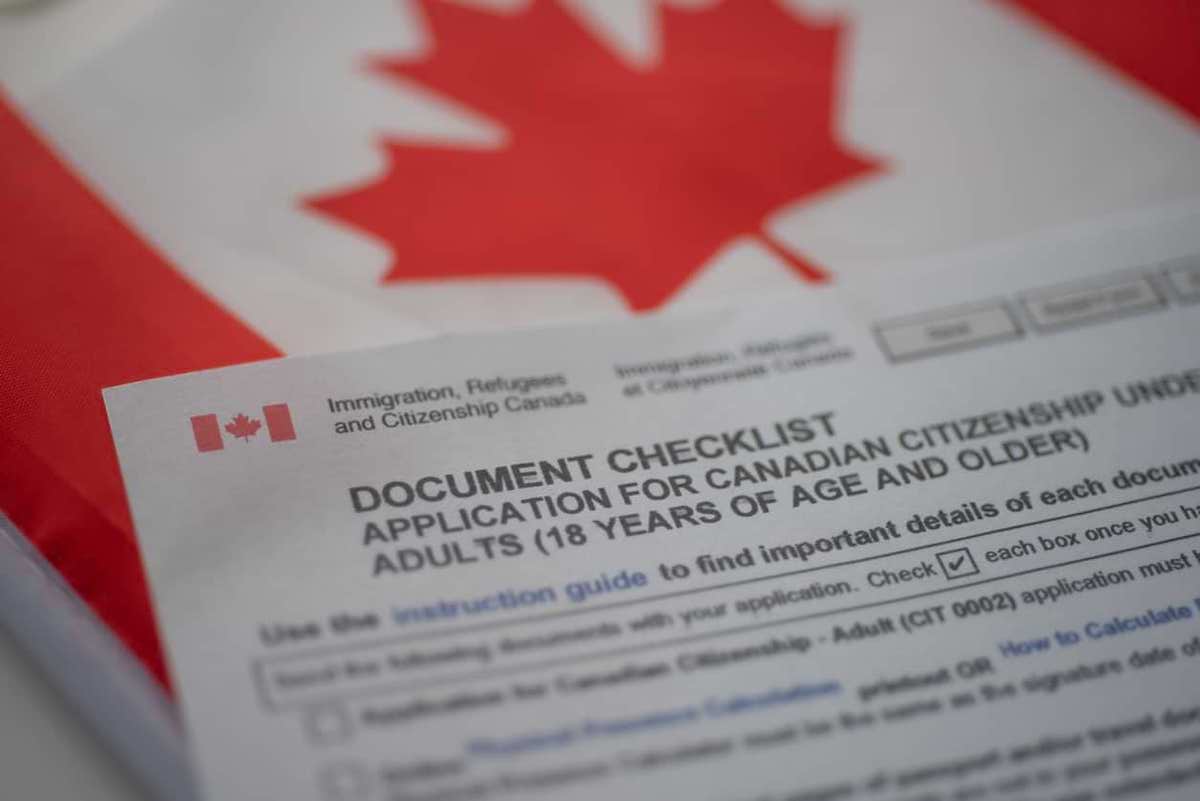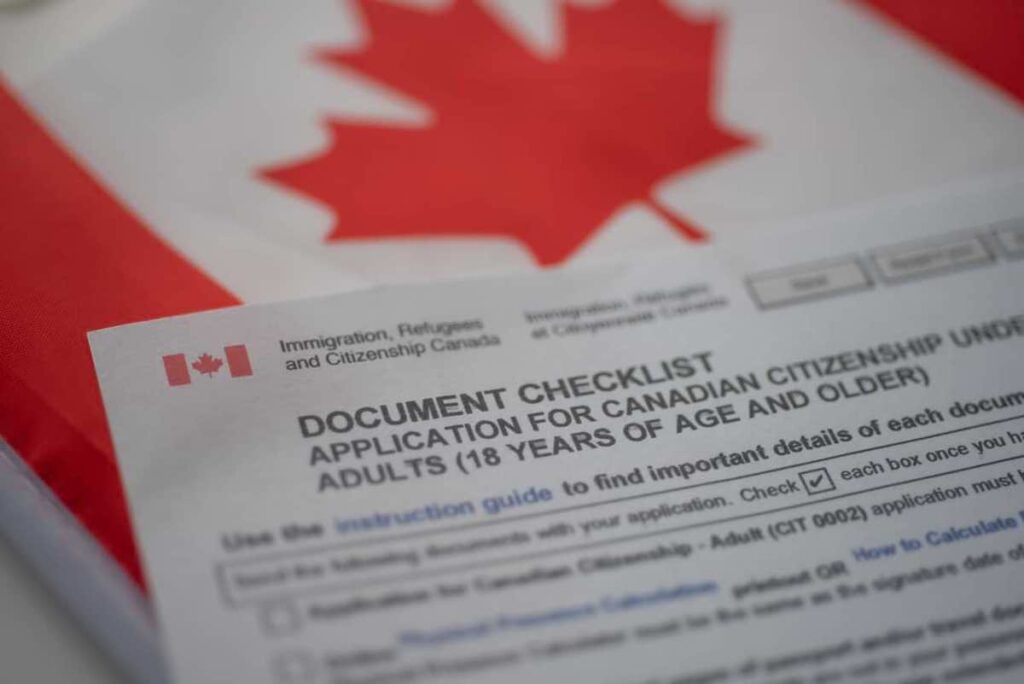Immigration Refugees and Citizenship Canada (IRCC) is now processing proof of citizenship applications in as little as three months, with application wait-times now reduced significantly from even pre-pandemic standards.
Now some foreign nationals—who have at least one biological or legal parent who is a Canadian citizen—can expect to receive a decision on their citizenship application sooner.
Schedule a Free Canadian Citizenship Consultation with the Cohen Immigration Law Firm
What is proof of citizenship?
Under Canada’s Citizenship Act, children born to Canadian parent(s) abroad are not automatically given Canadian citizenship.
Instead, these children need to apply for proof of citizenship, and (if successful) receive a Canadian citizenship certificate to confirm their citizenship to the country. This citizenship certificate, along with a Canadian birth certificate, are the only two documents that Passport Canada recognizes as verification of citizenship—making them critical when applying for a Canadian passport.
This process can be undertaken at any time of a person’s life and can even be started whether a Canadian parent is alive or deceased.
Note: Adopted children of Canadian parents, who were adopted after their birth are not eligible for this process. They will need to pursue other routes to become Canadian citizens.
New changes to citizenship law
On December 19th, 2023, Ontario’s Superior Court of Justice ruled that Canada’s second-generation citizenship cut-off law was unconstitutional and must be amended.
Under this law, Canadians who themselves were born abroad would not be able to automatically transfer their citizenship to their children, if they were also born abroad.
Ontario’s Superior Court ruled that this rule created a distinction in citizenship statuses between Canadians who were born in the country, and those who were not; due to the fact that the former group is able to automatically transfer citizenship to their children, while the latter group is not. The court further ruled that the federal government had six months to repeal the law and amend the Citizenship Act.
The federal government was given one month to appeal this decision, which they chose not to do. It is not known currently what the impact of this ruling will be for applicants who are looking to gain Canadian citizenship by descent, changes are anticipated following the federal government’s decision to not appeal the Ontario court ruling. CIC News will continue to cover the story as it develops.
Benefits of Canadian citizenship
Canadian citizenship brings a number of advantages . Canadians have protected rights and a permanent legal status in the country, access to social systems and benefits (including those relating to healthcare and education at greatly reduced costs) voting rights within Canada’s democracy, and the ability to hold political office.
In addition, Canadian citizens benefit from a Canadian passport (one of the most recognized in the world), have the ability to sponsor loved ones to visit and even settle in Canada, and can usually pass on their status to their children.
Canadian citizens are also able to hold dual citizenship with other nations who have similar provisions.
To learn more about proof of citizenship click here. To calculate citizenship
Related Topics
Top Stories

Immigration Refugees and Citizenship Canada (IRCC) is now processing proof of citizenship applications in as little as three months, with application wait-times now reduced significantly from even pre-pandemic standards.
Now some foreign nationals—who have at least one biological or legal parent who is a Canadian citizen—can expect to receive a decision on their citizenship application sooner.
Schedule a Free Canadian Citizenship Consultation with the Cohen Immigration Law Firm
What is proof of citizenship?
Under Canada’s Citizenship Act, children born to Canadian parent(s) abroad are not automatically given Canadian citizenship.
Instead, these children need to apply for proof of citizenship, and (if successful) receive a Canadian citizenship certificate to confirm their citizenship to the country. This citizenship certificate, along with a Canadian birth certificate, are the only two documents that Passport Canada recognizes as verification of citizenship—making them critical when applying for a Canadian passport.
This process can be undertaken at any time of a person’s life and can even be started whether a Canadian parent is alive or deceased.
Note: Adopted children of Canadian parents, who were adopted after their birth are not eligible for this process. They will need to pursue other routes to become Canadian citizens.
New changes to citizenship law
On December 19th, 2023, Ontario’s Superior Court of Justice ruled that Canada’s second-generation citizenship cut-off law was unconstitutional and must be amended.
Under this law, Canadians who themselves were born abroad would not be able to automatically transfer their citizenship to their children, if they were also born abroad.
Ontario’s Superior Court ruled that this rule created a distinction in citizenship statuses between Canadians who were born in the country, and those who were not; due to the fact that the former group is able to automatically transfer citizenship to their children, while the latter group is not. The court further ruled that the federal government had six months to repeal the law and amend the Citizenship Act.
The federal government was given one month to appeal this decision, which they chose not to do. It is not known currently what the impact of this ruling will be for applicants who are looking to gain Canadian citizenship by descent, changes are anticipated following the federal government’s decision to not appeal the Ontario court ruling. CIC News will continue to cover the story as it develops.
Benefits of Canadian citizenship
Canadian citizenship brings a number of advantages . Canadians have protected rights and a permanent legal status in the country, access to social systems and benefits (including those relating to healthcare and education at greatly reduced costs) voting rights within Canada’s democracy, and the ability to hold political office.
In addition, Canadian citizens benefit from a Canadian passport (one of the most recognized in the world), have the ability to sponsor loved ones to visit and even settle in Canada, and can usually pass on their status to their children.
Canadian citizens are also able to hold dual citizenship with other nations who have similar provisions.
To learn more about proof of citizenship click here. To calculate citizenship













